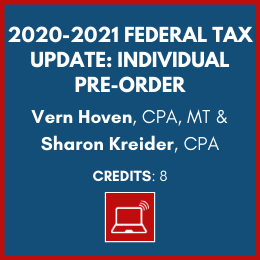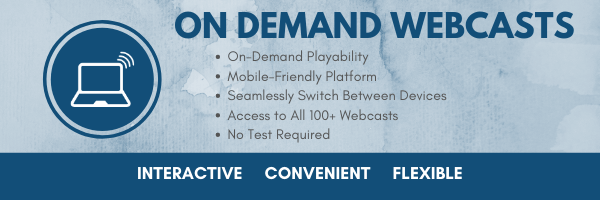
Guest Post: Audit Risks and Audit Areas to Focus on Due to the Coronavirus

Dr. Rod Redding received his PhD from Penn State University after working with Price Waterhouse and IBM. Presently, he presents seminars and webcasts and prepares self-study courses for Western CPE.
The Journal of Accountancy has published two articles that may help you prepare your audits for the effects of the coronavirus, on how the audit is performed. Highlights from these two articles are presented in this alert.
4 key COVID-19 audit risks for 2020 year ends, J of A, June 5, 2020
Four risk areas for auditors to consider as they prepare for their next audits of commercial entities:
- Internal control
The client’s relevant controls may have changed dramatically during the pandemic to accommodate remote workforces and process flows. When this is the case, the auditor may be required to conduct two evaluations of the design and implementation of relevant controls: one for controls that were in place before the pandemic and another for controls put in place after the pandemic commenced. - Fraud Risk
COVID-19 presents a veritable “perfect storm” for fraud risk, and auditors should be on high alert. Recall the three sides of the fraud risk triangle: incentives or pressure, opportunity, and rationalization.
Incentive
As many businesses were affected economically, employees may have felt pressure to make fraudulent journal entries to sustain the corporation’s viability.
Opportunity
Breakdowns in internal controls over financial reporting may have presented opportunitiess for fraudulent financial reporting or misappropriation of assets.
Rationalization
Employees could rationalize these fraudulent activities, thinking, “I’m only changing the numbers to help the company survive,” or, “I’ll pay this back as soon as things return to normal.” - Noncompliance with laws and regulations (NOCLAR)
Many small businesses have found it necessary to participate in various forms of federal economic stimulus funding, including programs enacted through the pandemic-relief legislation. Complexity of the regulations related to these programs, combined with the fact that applications for funding had to be submitted quickly with accounting staff working remotely for the first time, may have led to a heightened risk of inadvertent noncompliance with regulations. Audit teams should be aware of potential risks with respect to NOCLAR that could materially affect the financial statements. They should consider management’s response and mitigation strategy and evaluate the appropriateness of planned further procedures in that light. - Auditing accounting estimates
The risks related to revenue recognition could be especially acute in ASC 606 first year of implementation for private companies that have adopted the new standard. Auditors may also find that other audit areas, such as the allowance for doubtful accounts, may have a heightened risk of material misstatement. While auditors may have been able to evaluate management’s estimates in prior years by considering historical results or other measures, audits of clients with 2020 year ends may require the use of valuation specialists.
Auditing during COVID-19: 6 areas to focus on
Practitioners and their clients are facing challenges they have never encountered before.
J of A, May 15, 2020
With the impacts of COVID-19, the auditor’s role as protector of the capital markets has never been more important. Here are six areas to focus on as you perform your audits:
- Performing Audit Procedures Remotely
While auditing standards address what evidence an auditor needs to obtain, they don’t generally dictate how to meet those requirements. Remotely: DO you have right technological infrastructure to audit remotely? Staff trained for remote audit? How will you obtain client paper documents? - Going Concern
COVID-19 pandemic has caused the financial position of many organizations to deteriorate. For clients in certain industries (e.g., restaurants, hospitality) and in certain geographical areas, the entity’s ability to continue as a going concern may be called into question. - Emphasis of Matter
Is an emphasis-of-matter paragraph necessary? This would be the case if an unusually important subsequent event or major catastrophe is disclosed in the financial statements and, in the auditor’s opinion, it is necessary to draw the user’s attention to the matter. - Scope Limitations
As auditors work with clients throughout the pandemic, there is a real possibility that scope limitations will occur. For example, confirmations that are a key source of evidence may not be returned and alternative procedures may not be considered sufficient, or it may not be possible to evaluate the design and implementation of relevant controls at the client. - Subsequent Events
For audits of clients with year ends that fall in 2020, pandemic-related events may require adjustments to the financial statements or additional disclosures as Type I events (i.e., events that provide evidence of conditions that existed at the date of the financial statements). - Risks and Uncertainties
Many entities will be required to disclose risks and uncertainties associated with COVID-19, as the pandemic may meaningfully impact significant estimates and exacerbate concentrations. Auditors should assess whether the robustness of disclosures appears appropriate.
END





